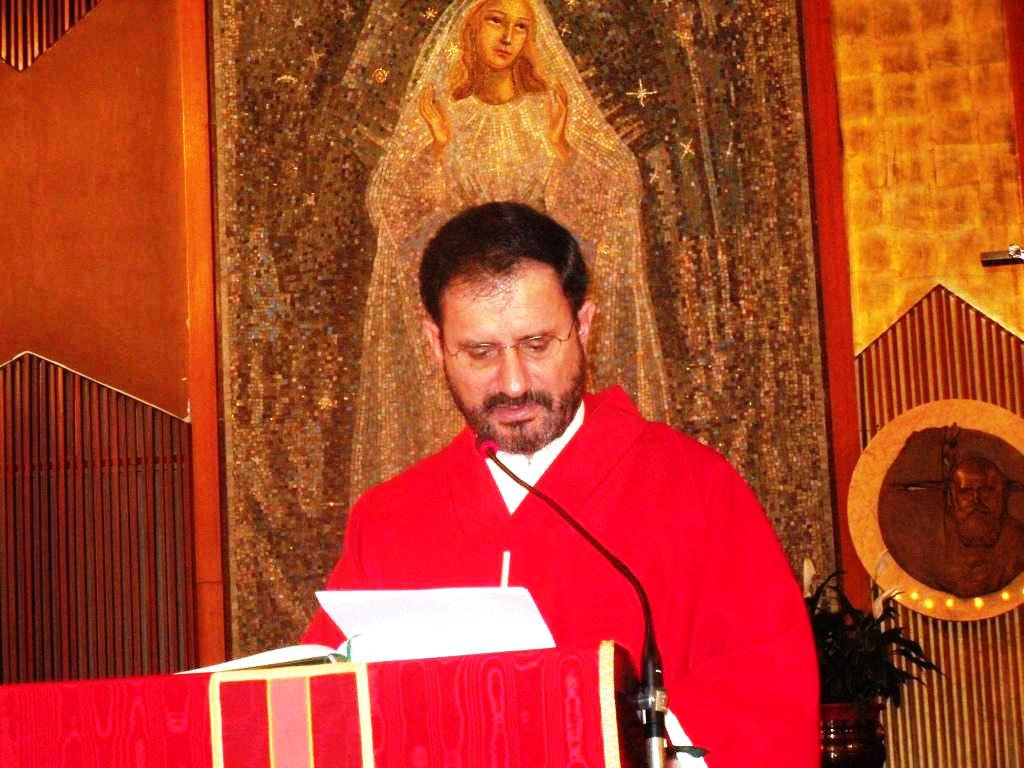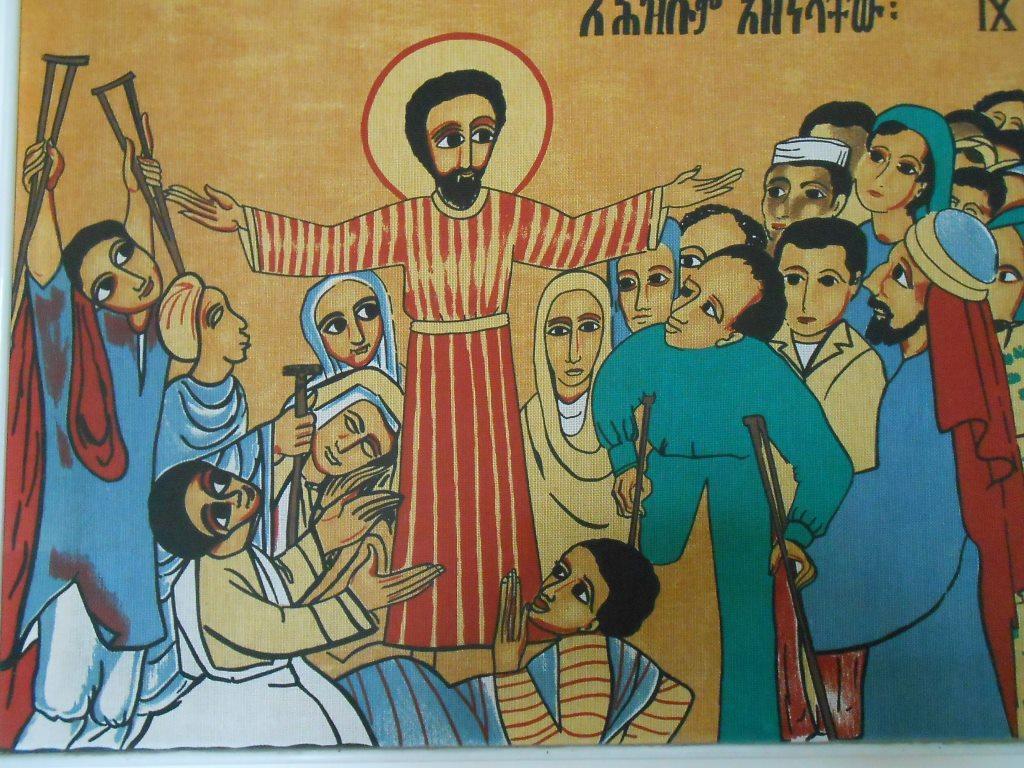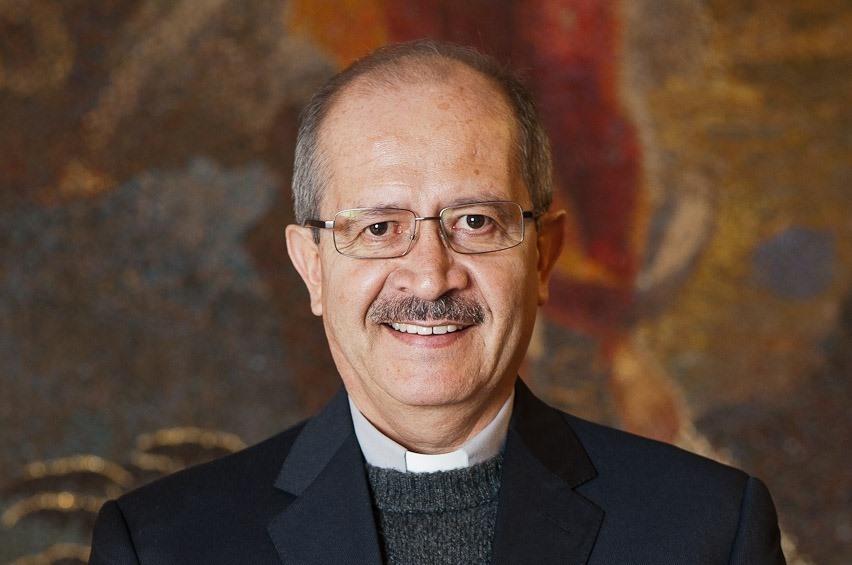Daniel Comboni
Comboni Missionaries
Institutional area
Other links
Newsletter
Rome, Friday, June 3, 2011
On June 1 the Comboni Missionaries celebrated in Rome the 144th anniversary of the foundation of the Association of the Good Shepherd for the Regeneration of the “Nigrizia” which marks the official beginning of the missionary service of the Comboni Missionaries.
The decree Magno Sane Perfundimur Gaudio of June 1, 1867, prepared by Saint Daniel Comboni himself and promulgated by Canossa, approved the foundation in Verona of the Association of the Good Shepherd for the Regeneration of the “Nigrizia” which, while contemplating a wide participation by all in the mission to Africa, found in the rising institutes of Verona (both the male and female branches) its first relevant expression. To celebrate the 144th anniversary of this date means to celebrate just as many years of the history of the missionary service of the Comboni family.
During the solemn celebration of the Eucharist, the Superior General, Fr. Enrique Sánchez González, delivered the following homily which we publish in its entirety.
“Dear Brothers,
As we remember the anniversary of the foundation of our Institute, it comes natural to me to thank the Lord for these 144 years of Comboni missionary history and for the life and work of all our confreres who, by their consecration and passion for mission, have written this history. Today we remember the date of the official beginning of our family and of the activity that San Daniel Comboni wanted to have in order to answer to what was for him the most important enterprise of his time: the evangelization of Africa.
Looking backward, we realize that at the origin there is a history with very humble, but at the same time very surprising roots, certainly because it is an activity born not of human desire, but by God’s will. Consequently, we must recognize that we are involved in a history which continues to astonish us and which makes us enter into the mystery of God’s works that move forward casting aside all our predictions.
Humble and surprising roots
To remember the date of the foundation of our Institute is for us today an important occasion to acknowledge how the Lord, in the course of time, has been faithful to us and has never abandoned our missionary family. I said that that our origins have been very humble, and certainly so they were in order to give to the Lord the opportunity to show his greatness through the lives of the 3911 Comboni missionaries who, through their consecration, have given life to the mission of Central Africa and to many other missions that, following our charism, are realities that speak of the urgency of the proclamation of the Gospel to our brothers and sisters.
When Comboni was rejoicing for the birth of the Institutes for Africa, he was practically alone and in his hand he only had a document of foundation, a mission as large as a continent, a passion and love for the Africans as great as his own heart, a faith in the Lord greater than all imaginable obstacles and a plan that made him dream of an Africa already Christian. Comboni could foresee that his great desire was not a project or a mission of his, but rather the sign of the great love of God for that part of humanity which for him had become sister, mother and spouse, the object of his love and his reason for living.
From that June 1, 1867, Comboni knew that he was becoming the privileged witness of a multitude of activities that the Lord was going to accomplish before his eyes, so that he allowed himself to be surprised and fascinated, becoming the founder of an institution that he had never even imagined and which continues to surprise those who have inherited his charism.
The Institute yesterday and today
Remembering the past, we have before our eyes a small, poor, fragile Institute – albeit made up of men who were certainly courageous and of great faith – but called at the same time to become a great Institute, perhaps not so much for the number of its members and of its works, but rather because it is the work of the Lord. Suffices to remember that in the first 14 years of its history, of the 126 missionaries who joined the Institute, 78 left it because they found themselves involved in a mission that was too hard and too difficult, according to what Comboni himself was saying.
We are an Institute that has lived through moments of great trials and of deprivation in all aspects: poverty of means, of structures of personnel. It seems that the word sufficiency is not part of our vocabulary. At the same time, we have many examples of confreres who show us great riches that cannot be measured or numbered by our standards: human, Christian richness; richness of faith, of love for one’s vocation, of dedication and spirit of sacrifice, of martyrdom and of Comboni pride, in the positive sense of the word. All of this is simply a gift, the grace of the Lord who continues to bless us. We have never measured up to the demands of mission. We have never been able to say: now we have made it. We have never had a sufficient number of vocations. The mission has always been greater than our strength and our capabilities. Thus we have always been obliged to recognize that our greatness, our strength, our success have never come from within ourselves. As we celebrate the anniversary of our Institute we must recognize this with great simplicity, especially at this time, when we run the risk of reading our history through the lenses of our strengths, our means and our criteria. We must remember that, today as yesterday, we are in God’s hands and our entity belongs to him, even though this fact does not exempt us from engaging in a necessary process of discernment in order to better answer to the will of God in our time.
Reality, inside and outside the Institute, has certainly changed with the passing of time, but in a way what is essential has not changed. The Lord wishes to continue using our little cenacle of apostles in order to be present in the history of humankind. Mission continues to be the great challenge of our time and the need to proclaim the Gospel becomes every day more urgent. Mission situations have become more difficult, even though the world in which we live has an extreme need for an encounter with the Lord. The new areopagi have multiplied in our society and the resistance to accept the proclamation makes our vocation not only necessary, but indispensable in the building up of humankind as God wants it.
As an Institute, today as yesterday, we are called not so much to give an answer to the needs of development and human promotion, urgent as they are in many areas where we are present, but rather to be witnesses of God who listens and gives an answer to the search for meaning of the human being of our time. It is beautiful to see how the Institute which we have inherited carries a history of great missionary passion, which is embodied in the many beautiful individuals who wrote it.
I believe that looking at the elderly, of whom we today speak so much, it is not difficult to see in them the great treasure of lives donated to the poor in a gratuitous and exemplary fashion. It is through them that the Institute has shown that it possesses a unique vitality and the ability to live through long periods of sacrifice, total dedication, renunciation without limits, and love lived with simplicity in the service of others.
Today’s celebration is also a good opportunity to recognize the creativity, faithfulness, love for our charism that many of our confreres are living without making noise, hidden in places where no one acknowledges the good that’s being done, the life of charity, the joyous praise in celebrating the mysteries of God and make him present in today’s world. At the same time, it is an extraordinary moment for thanking the Lord for the vitality, the enthusiasm, the radicalism, the generosity of not a few young Comboni Missionaries who joyfully live the gift of their lives in places where reins the glorification of living for oneself, realizing personal projects, seeking individual happiness, without being bothered by the needy members of humanity.
A celebration that becomes a challenge for the future
In conclusion, I think that this feast challenges us to think of the future of our Institute. We live in a difficult time, especially if we consider all the situations we must face: but we move forward in the certainty that the Lord will not deprive us of his Spirit.
The present time makes us recognize that the Institute is not a reality existing outside ourselves, an object with which we are related. The institution that we know under the label of “Comboni Missionaries” is not an NGO immersed in development or in giving a little aid to those who need it. Even as we do all this, we must not forget that we are first of all a missionary family called to witness to God’s presence in the world.
We are a gift to the Church, which expects to see in us men who can live in communion, devoted to placing God at the center of all that we are and do. We are the heirs of a charism that makes us understand how our vocation is born of and grows from an experience of faith and, therefore, we are an Institute made up of people who live in the hope and in the certainty that God is at work in our midst. We are carrying on a mission which has always been greatly dynamic and, consequently, today we celebrate not only an event of the past, but also the challenge that propels us towards the future and compels us to give a new look to this Institute, which wants to continue to be the work of God taking shape through the humility and the poverty that we carry within ourselves.
May the Lord bless us with the gift of his Spirit so that he may continue to guide us and to hold us up in our missionary endeavor; and may Saint Daniel Comboni accompany us as father and founder of this little cenacle of apostles called today to become the presence of God among the poor.”




